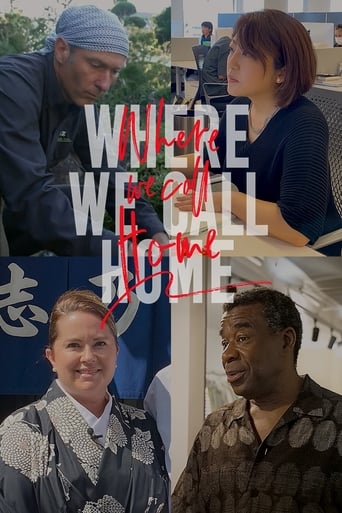RISING Season 8
With 30 Day Free Trial!
RISING
2015
Going beyond the horizon. Meet Japan's entrepreneurs whose innovative thinking is changing traditional mindsets in their various fields of work.
Watch Trailer
RISING Season 8 Full Episode Guide
Against the backdrop of an aging society, many of Japan's long-running small businesses, unattractive to investors and lacking obvious successors, are in danger of disappearance – particularly in provincial areas, where a vicious cycle of regional decline sees ever fewer families moving to such locations, further depleting the pool of potential successors. Asai Katsutoshi is fighting back, with a unique online service that matches such businesses with individuals keen to take on a new challenge.
Though Japan is famed for its fisheries, in recent years, factors such as overfishing and climate change have seen catches fall to just a third of their 1980s peak. Mizukami Yosuke is the operator of a unique app that supports fisheries workers by using AI to analyze the historical movements of veteran fishermen and predict the most fertile fishing grounds. And now, the platform is also being leveraged to collect fisheries data vital to the sustainable future management of fragile fish stocks.
Across Japan, recent decades have seen a surge in the number of seniors living alone, with the issue of isolation further compounded by the pandemic. Goto Manabu operates a video chat service that connects seniors in need of meaningful interaction with foreign users eager to learn about Japanese language, culture and customs. And as well as promoting cross-border, cross-generational communication, the service also connects Japanese speakers with domestic firms in search of international talent.
Across Japan, over 250 thousand children consistently miss out on school and other shared peer-group experiences due to chronic medical and physical conditions. In 2016, Kitano Hanako built upon her own experiences of similar hardship to found an organization that has so far helped some 1,300 such children to unlock their potential through sports and placements with professional and university sports teams.
Hashimura Kazunori specializes in rejuvenating unlikely destinations as luxury glamping sites. Since his first venture, a secluded cove in Shizuoka Prefecture that now receives some 3,000 visitors per year, his model has helped revitalize various depopulation-hit areas, like one Gunma village where the unmanned local train station was reborn as a glamping hub, creating jobs and even attracting new residents. We follow his latest project, the transformation of an abandoned school in Fukuoka Prefecture.
Since the Great East Japan Earthquake & Tsunami of 2011, Japan's market for emergency rations has skyrocketed. However, once purchased, most homes and workplaces forget about such supplies until their use-by date approaches, and they are ultimately thrown away. Yokohama college students Seki Yoshimi and Kikuhara Misato launched a social business that avoids such waste by leveraging these resources to tackle burgeoning food poverty that has been exacerbated by the COVID-19 pandemic.
Mori Kenshiro is the creator of an online learning platform that equips adults with the skills they need to navigate Japan's pandemic-hit job market. Along with free livestreamed evening classes, and an interface that lets users ask questions and chat with classmates in real time, a small monthly fee gives access to thousands of archived lectures. And as well as individuals and businesses, Mori's firm is working with depopulation-hit areas to prepare them for the digital economy of the future.
Japan is home to some 730,000 bridges. With most built during the rapid economic growth of the mid–late 20th century, many are potentially in need of maintenance, but without the personnel to conduct the necessary checks. Morikawa Haruna and husband Ayumu are working to address this through a specially developed AI system that uses detailed photographs of bridges and other infrastructure to automatically generate repair plans. And this technology is also helping to promote workforce inclusivity.
In the earthquake and tsunami of 2011, Ishinomaki, Miyagi Prefecture lost about 4,000 lives, with damage to 77% of local homes. Since then, population decline has seen more homes go empty, but, 11 years later, a unique enterprise led by Watanabe Kyoko is leveraging these properties to revive the community and ride out the pandemic. By renovating them into guesthouses, co-working spaces, communal houses and a creative hub for artists, she is actually attracting new residents to the area.
In traditional sake brewing, sake lees is a major byproduct that is typically thrown away in large quantities. Yamamoto Yuya runs a distillery that is trying to change this by using these long-overlooked leftovers as a base for the production of craft gin, lending astonishing depths of aroma and flavor to the final product. And this sustainability conscious business also makes use of other surplus ingredients like cacao husks, coffee grounds, and beer that has gone unsold due to the pandemic.
In recent years, growth in the global aquaculture market has seen yields overtake traditional fisheries. But conventional aquaculture techniques are a source of pollution, and also susceptible to weather events. Professor Yamamoto Toshimasa of Okayama University of Science has solved these problems and increased yields through a sustainable new approach that enables faster growth at higher stocking densities, also providing a promising solution for poverty and food security in developing nations.
Japan is full of both young people keen to visit new locations but lacking the funds to do so, and provincial towns seeking a fresh influx of younger workers. Nagaoka Rina created a service that tackles both issues by offering young people paid placements with local farms and businesses, also providing free accommodation and enough downtime to explore in exchange for a few hours manual work per day. And as well as labor, the towns gain new ambassadors to showcase their appeal more widely.
With traditional Japanese carpentry on the decline, young architect Akiyoshi Koki is rejuvenating age-old construction approaches through digital fabrication technology like laser cutting and 3D printing. From award-winning reimaginings of traditional homes, to the promotion of local timber production and consumption cycles using digital equipment, and unique online platforms for ordering pre-cut furniture and even homes, he is breathing new life into both the construction and forestry sectors.
Free Trial Channels
Seasons

















































